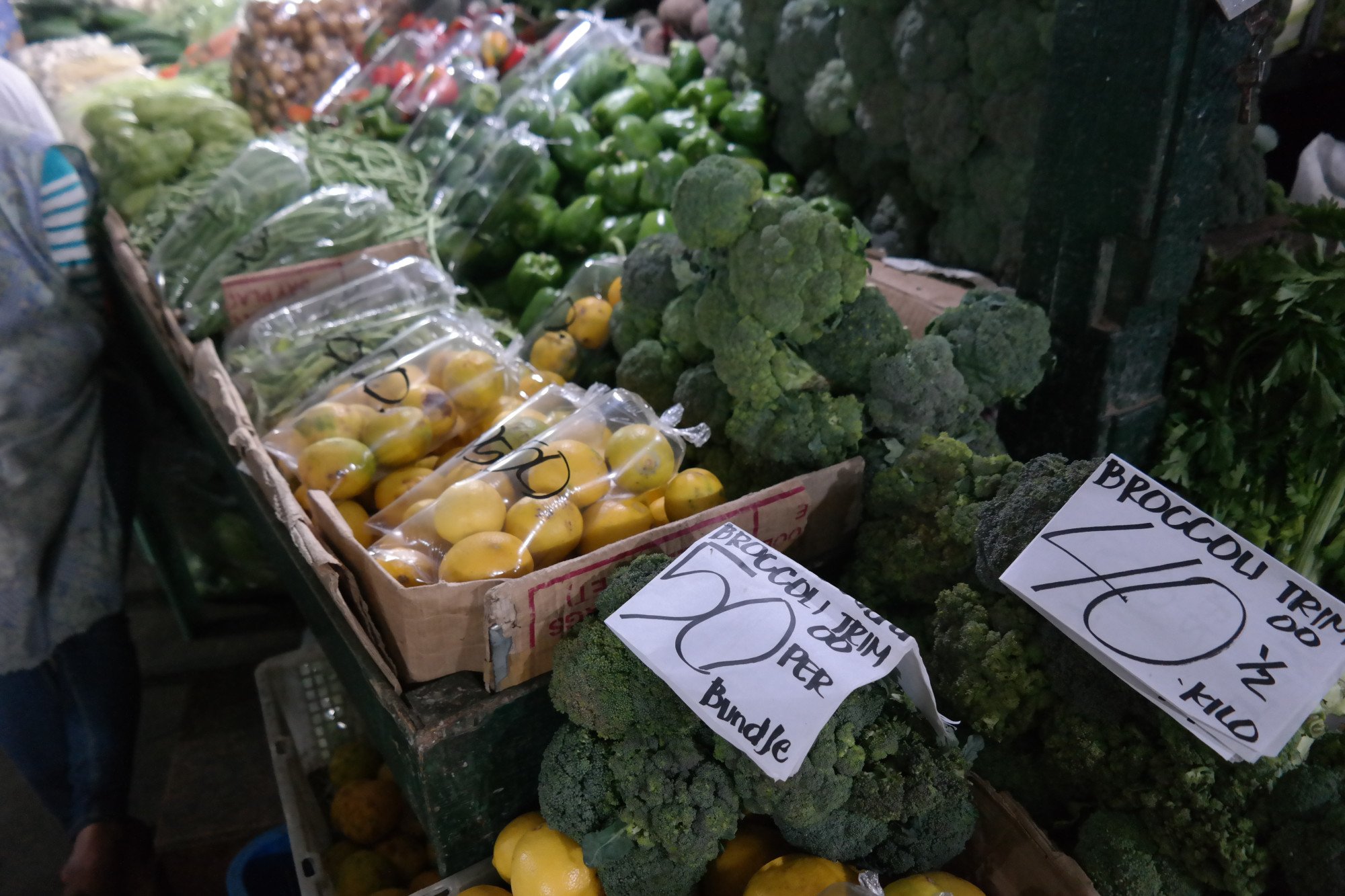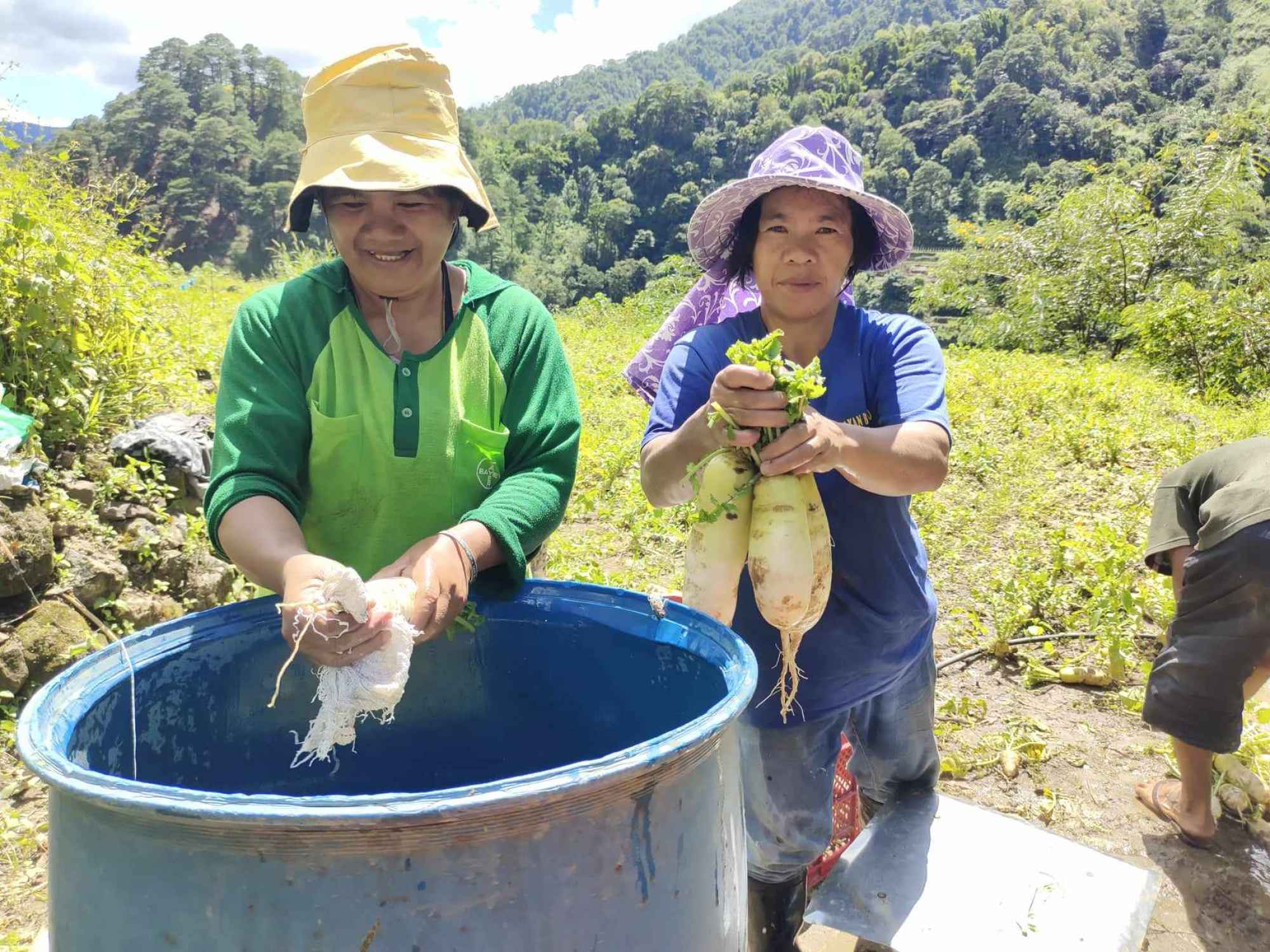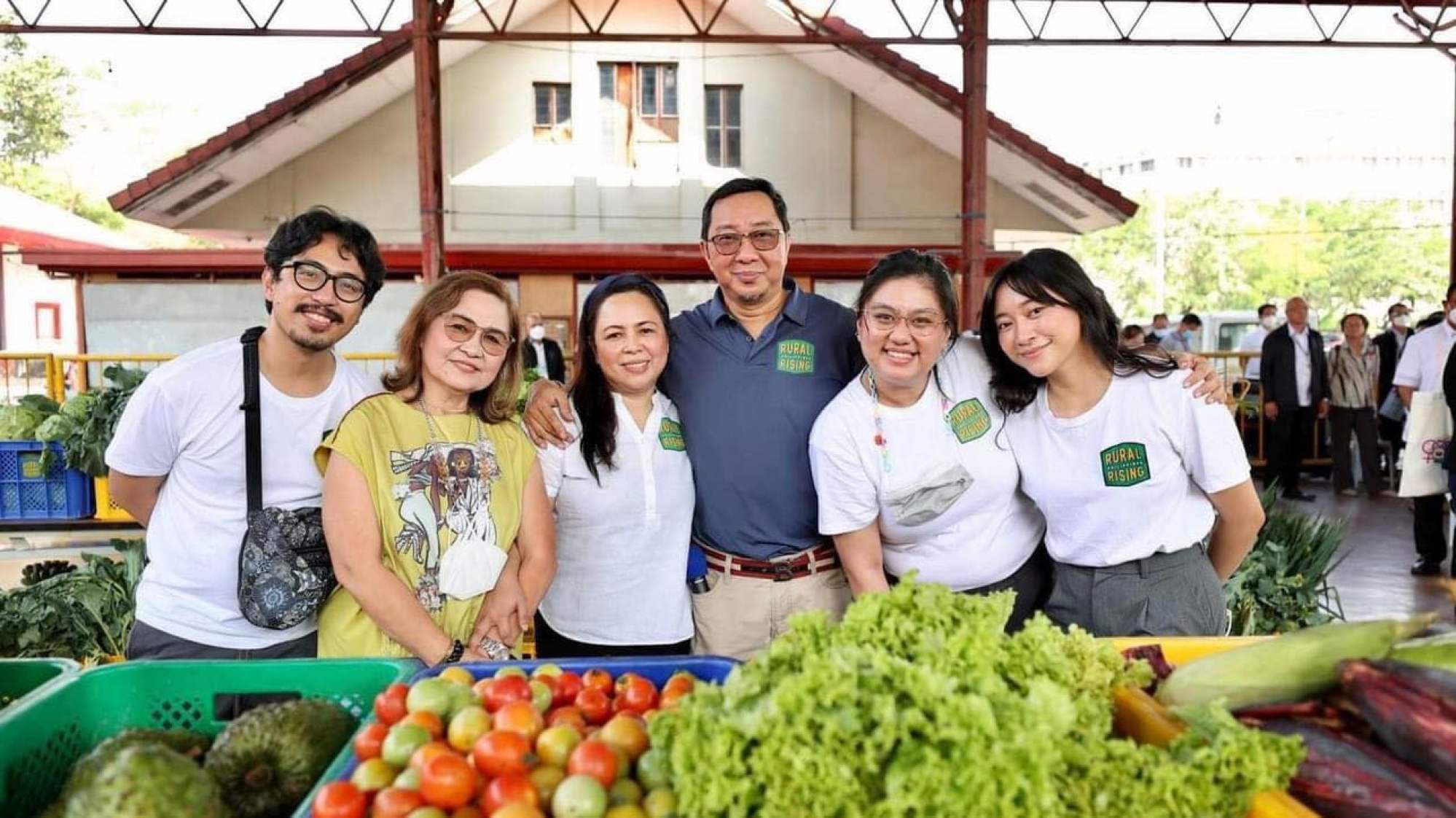They gathered the farmers’ produce and managed to sell three tons. Within a month, they rescued 20 tons of vegetables from distressed farmers in Benguet. What went unsold was donated to various community pantries around Metro Manila to help families affected by the pandemic.
The Estradas named their online community Rural Rising. They began conducting regular rescue buys from small-scale farmers at above-market gate prices and selling them to members of their online community at affordable rates, eliminating the middlemen that often caused retail prices to spike.

Today, their non-profit initiative aims to revitalise the country’s dismal agricultural sector through fair trade. The group responds to distress calls from farmers, hauling their produce in trucks to the organisation’s dispatch locations in Metro Manila.
Since the Estradas began their efforts in 2020, the group has now grown into a community of more than 200,000 that works directly with a network of 4,500 farmers from 39 provinces across the country.
Each day, the organisation receives about 10 calls from subsistence farming communities, who usually live below the poverty line, looking to dispose of their produce that has been refused by middlemen or haggled down to rates so low the farmers cannot recoup their expenses.

“Traders promised they would buy our crops for 25-30 pesos a kilo but would never return … These traders are taking advantage of us. They purposely wait for our harvest to deteriorate so they can lowball us and sell them at high prices in urban areas,” the farmer said.
Rural Rising’s rescue buy programme allowed the group to sell the farmer’s onions at 350 pesos for 4kg, three times cheaper than the prevailing market price.
“We realised that we have the ability to help not only distressed farmers but also consumers who are paying 10 times more the farm gate prices for their produce because the prices were jacked up by many layers of middlemen,” Estrada said.

Rural Rising pays farmers fair wages by calculating the costs to grow the produce plus an additional 30 per cent, creating a sustainable source of income for farmers to plant their next crops, Estrada says.
“They do not incur debt or get held hostage by the high prices of fertilisers and pesticides,” Estrada added.
The practice has led to farmers pushing back against middlemen’s prices by using Rural Rising’s farm gate prices as benchmarks. The farm gate price is derived from the market value of a product minus the selling costs.
Estrada says in areas where middlemen’s rates are too low, Rural Rising will triple the amount paid to farmers, thereby raising the benchmark and encouraging farmers to fight for better prices for their produce.

Despite the gaps in the Philippines’ agricultural system, Estrada says having more consumers buy locally can help secure the country’s food supply chain.
Earlier in January, the Department of Agriculture declined to acknowledge an oversupply in vegetable production in highland areas such as Benguet, despite stories of farmers dumping their excess harvest because traders were unwilling to buy it.
“We blame the government for the ills of agriculture, especially when it comes to produce imported or smuggled into the country. But consumers don’t realise that the solution is in their hands, it is within their power,” Estrada said.
“If Filipinos show love for their country by buying only local produce, there will be no demand for anything else … There will be no overproduction. Local produce will find buyers without fail, and farming will be sustainable.”

With Rural Rising’s intervention, farmers now look to have a fighting chance of earning a good living. One recent video posted on the group’s Facebook page showed the wife of a corn farmer giving a tour of her newly renovated house. “Thanks to the members of Rural Rising, we were slowly able to build our family’s home,” she said.

